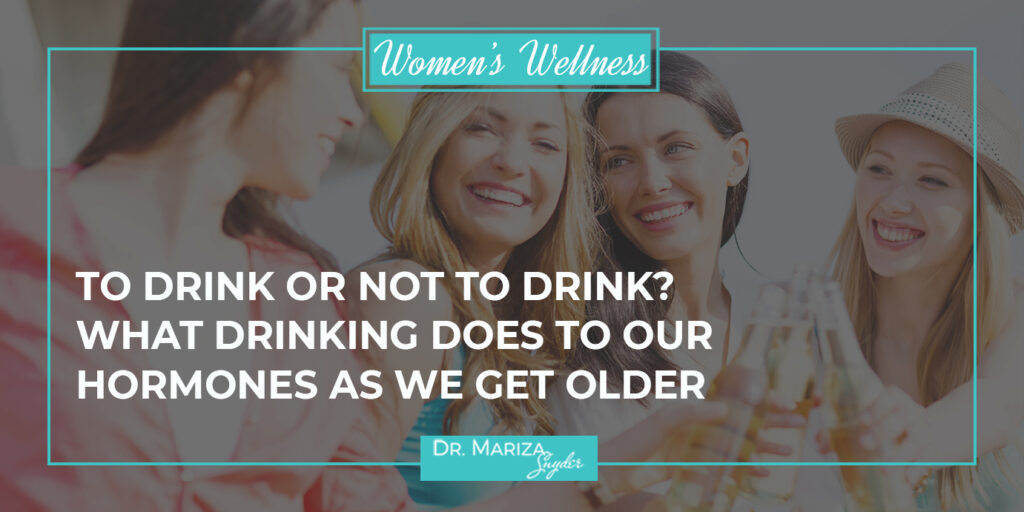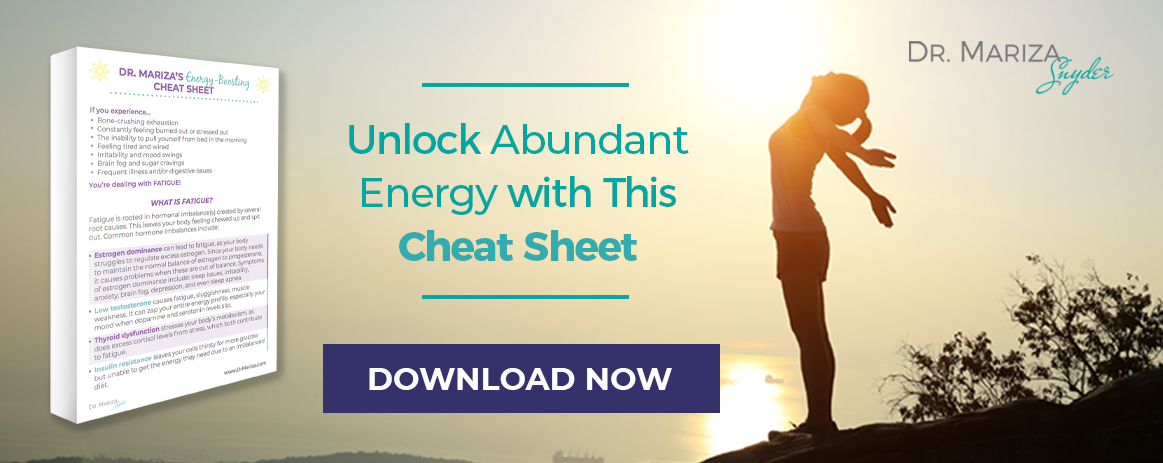
In my early to mid-30s, my body started to change. Drinking alcohol — even just a couple of glasses of wine at night with dinner — became disruptive to my health. I was putting on weight fast, my brain would feel scrambled in the morning, and I looked puffy.
I decided to go on my first 28-day detox, and I realized the impact alcohol had on me. Without the alcohol and sugar, I felt clearer, more emotionally resilient, lighter, and more on top of my game — no more groggy mornings and feeling a little bit “blah.”
Almost every time I’ve drank on an occasion over the past few years, I felt the consequences: I felt hazy, low energy, moody, and overall off! Often the next day, I would say, “drinking yesterday just wasn’t worth it.”
How our bodies process alcohol differently as we get older
Alcohol is a huge part of the social experience, especially if you live in a city area with lots of fun restaurants, malls, and bars. As we age, however, many women simply can’t tolerate alcohol the way they used to. The way we are able to break down alcohol in the liver slows down. Yet, many of us are still drinking for a multitude of reasons:
- It’s fun
- It’s social
- It relaxes the stress away
What you used to be able to tolerate in your 20s and even early 30s, you may no longer tolerate without health consequences in your 40s and beyond. In the thousands of women I’ve connected with, they often feel a shift in their late 30s and early 40s.
And it becomes more apparent if you give your body an alcohol break for at least 14 to 30 days. That’s why Dry January and Dry February are so popular.
Although I realize this is an unpopular topic, I want to dive deeper into what happens in a woman’s body when drinking alcohol because empowering yourself with this knowledge can help you make the best decision for your body.
So here are some of the ways alcohol affects women in perimenopause and menopause:
1️. WOMEN METABOLIZE ALCOHOL DIFFERENTLY THAN MEN
Women metabolize alcohol less effectively than men. We have slower rates of detoxification and lower volumes of total body water. When drinking the same amount over the same intake, women have higher blood alcohol concentrations compared to men.
As a result, women get buzzed and drunk faster than men — even when adjusted for body weight. This is because in general, we have more fat, less water, and other variations based on our menstrual cycle and hormones.
This also means that the alcohol stays in your body longer and is often harder for your liver to cycle it out than it would be for a man. As women, our livers do a LOT of work when it comes to hormone regulation, so this extra stress can cause lots of unpleasant downstream effects like estrogen dominance, hot flashes, PMS, migraines, and more.
2️. ALCOHOL USE DISORDER PROGRESSES MORE QUICKLY IN WOMEN
Among people who develop alcohol use disorders, women progress more quickly than men from initial use to misuse. This is a phenomenon called “telescoping.”
Women with a history of childhood maltreatment are at particular risk for telescoping, at rates far higher than seen in men.
3. DRINKING CAN AFFECT YOUR HORMONES
When drinking alcohol, our endocrine glands — including the ovaries and adrenal glands — become impaired. Drinking alcohol can also impair the functions of the glands that release hormones and the functions of the tissues targeted by the hormones, which can cause medical problems. (2)
When alcohol impairs the hormone system’s ability to work properly, major bodily functions are affected, including:
- Growth and development
- Maintenance of blood pressure and bone mass
- Production, utilization, and storage of energy
- Reproduction
4. ALCOHOL IMPACTS BLOOD SUGAR BALANCE
Another big concern is the impact that alcohol has on our blood sugar balance. The main energy source for all body tissues is glucose. The body gets glucose from:
- Food
- Synthesis in our mitochondria
- The breakdown of glycogen, which is stored in the liver
Your body’s blood sugar levels are controlled by insulin and glucagon, hormones secreted by the pancreas. (3) They work together to maintain a constant glucose concentration in the blood. Insulin lowers glucose levels, while glucagon raises it.
Other hormones from the adrenal glands and pituitary gland back up the function of glucagon to make sure the body’s glucose level doesn’t fall low enough to cause fainting, passing out, or even brain damage. (4) (5)
Alcohol interferes with all three sources of glucose and interferes with the hormones that regulate glucose levels. There are many ways alcohol consumption affects the body’s glucose levels. Alcohol is known to:
- Augment insulin secretion, causing temporary hypoglycemia
- Inhibit glucose production while alcohol is being metabolized
- Impair the hormonal response to hypoglycemia with heavy consumption
- Limit intake of glucose by not eating properly when drinking
Chronic heavy drinking can increase the body’s glucose levels. A review published in 2015 reported that chronic heavy drinking can cause glucose intolerance in healthy people (6). It can also:
- Alter the effectiveness of medications for diabetes
- Cause both hypoglycemic and hyperglycemic episodes in alcoholics
- Increase secretion of glucagon and other hormones that raise glucose levels
- Lower survival rates for alcoholics with diabetes
- Reduce the body’s responsiveness to insulin
To summarize, alcohol consumption over time can lead to metabolic dysfunction and inflammation. For many women struggling with stubborn weight (especially around your belly), this glucose intolerance and widespread inflammation can be a major factor!
5. MISUSE CAN SPECIFICALLY AFFECT ESTROGEN
Estrogen is one of the biggest drivers of how you feel in perimenopause and menopause. If it’s out of balance, you’re going to have a harder journey into this next stage of your life. But if you support your body’s estrogen levels, you’re more likely to glide into perimenopause and menopause with ease and grace.
Estrogen creates breasts and hips — but it’s also a growth factor that can turn on inflammation and abnormal growth, causing:
- Breast cancer
- Endometrial cancer
- Diabetes
- Fibroids
- Endometriosis
Beer, wine, and bourbon are all phytoestrogens that can raise a woman’s estrogen load regardless of age, putting her at risk of estrogen-sensitive conditions like:
- Fibroids
- Migraines
- Bloating
- Low energy
- Weight gain
Beyond these more obvious effects of alcohol on estrogen, the over-burdening of your liver by frequent drinking can have downstream effects that significantly impact your estrogen levels. Your liver is a primary driver of hormone balance in perimenopause and beyond, so supporting this vital organ is essential to feeling your best.
DON’T LET YOURSELF SUFFER THE NEGATIVE IMPACTS OF DRINKING
The downsides to drinking alcohol and misusing it are clear. Alcohol affects women’s hormones, blood sugar, and more.
And probably the most concerning is the rise of alcohol misuse in women. Historically, alcohol misuse and AUD have been more common in men than women. However, recent data from the past 10 years shows we are catching up.
Furthermore, the alcohol industry specifically targets women in their marketing campaigns and wants to normalize alcohol consumption so that you feel it is a core part of feeling good and connected to others.
This whole concept of the “wine down” is not doing us any good!
GET FREE FROM THE NEGATIVE EFFECTS OF DRINKING ALCOHOL WITH A 14-DAY DETOX
If you have been feeling run down, numb, stressed, and you know something is off, I encourage you to consider giving booze a break for at least 14 days (ideally longer, but 14 days is a great place to start).
No surprise, in my 14-Day Detox, alcohol is on the “NO” list — right, along with sugar, processed foods, dairy, and gluten. In order to feed and heal your gut and give your liver a much-needed break, alcohol simply can’t be included.
Alcohol literally clogs your liver, hinders detox, and makes you puffy and resistant to weight loss.
If you’re ready to give your body a break from an overload of toxins, foods, alcohol, and other factors that are making you feel sluggish, worn down, and generally “blah,” join my 14-Day Detox today!
As you start your detox from alcohol, here are a few tips to make it easier:
- Always have sparkling water on hand — with lime or lemon — to have something you can sip on.
- Keep some peppermint oil on hand if a craving hits, especially if you are out with friends. Peppermint will stave off a sugar and alcohol craving.
- Don’t keep booze in the house.
- Have an accountability buddy to support you.
- And if cravings get super crazy: Take 1T of MCT oil in the afternoon to avoid delving into that first glass of wine. Based on anecdotal reports, MCT raises healthy short-chain fatty acids in the body, which may make you feel more satisfied when you prepare for dinner.
I hope these tips are helpful if you choose to give yourself a break! I know that your gut and liver will be grateful, too.
Click here to join my 14-Day Detox!
Free Download: Easy, Practical Tips to Get More Energy!
Download the free Energy-Boosting Cheat Sheet now to learn how to unlock abundant health and energy that lasts—in only seconds every day!
Sources:
1. https://www.cdc.gov/alcohol/fact-sheets/binge-drinking.htm
2. https://www.verywellmind.com/top-myths-about-drinking-alcohol-66517
3. https://www.verywellmind.com/how-sugar-affects-the-brain-4065218
4. https://www.verywellmind.com/what-are-the-adrenal-glands-2794816
5. https://www.verywellmind.com/the-anatomy-of-the-brain-2794895



Excellent! I would love to share this on my podcast. Would you be at all interested in discussing how ALL of these things have long-term impacts, even on brain health? Since women are twice as likely as men to develop dementia, this is very important.
Hi Kate! Here is a great blog to check out on brain health.
https://drmariza.com/6-supplements-that-can-keep-your-brain-young-and-healthy-during-menopause/
I stopped drinking Sept 30, 2021 at age 43 and it has been the single best decision I have made! Easy? No. But definitely not as hard as I thought it would be. Nearly every decision after, including running my first half marathon in nearly two decades followed that one single decision. For me, the relationship was toxic and it’s not worth it.
Great job, Cathy! ♥️